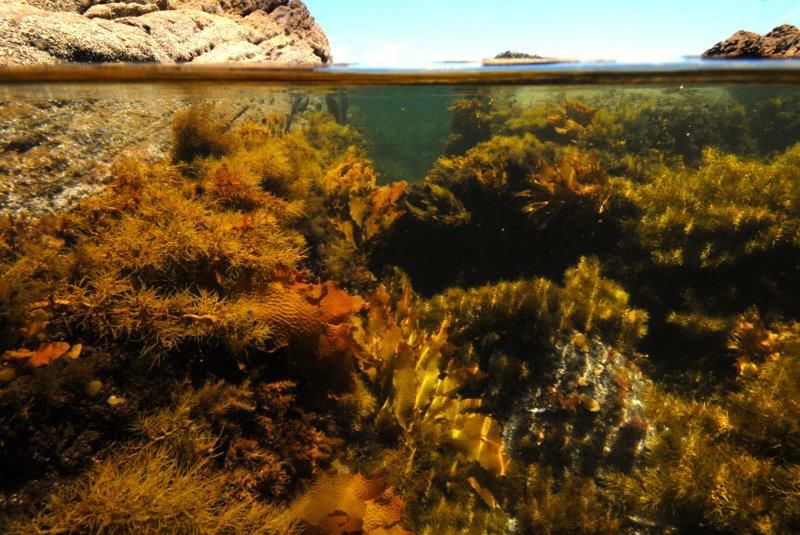Seems like only yesterday that lovers of temperate southern Australian rocky reefs first heard and, in some cases, eagerly promulgated the term “The Unique South “. The term had instant appeal as a catchy descriptor with seemingly obvious educational value. I loved the term from the first encounter.
I guess the term “Unique South ” struck so powerful an emotional chord within me because fate decreed the time had come. And because of the validation it bestowed on people who like temperate marine rocky reef ecosystems at least as much as tropical coral reefs. Sublime timing for that “long -overdue” validation I and others living in paradise had been yearning for, often without quite realising it! So much so that for years, I hardly paused to ponder why the non-snorkeling and diving majority of southern Australians failed to share my loud enthusiastic appreciation for this wondrous new entity.
I’d get dumb comments like, “David, we already know that we live on the southern coast of Australia.”
Or “Yes David, we already know how unique the terrestrial plants and animals are, here ‘down under ‘…”
“But what on earth do you mean by the unique south?” “Stop telling us what we already know, David ”
…by which time it was too late to explain, as the listener vanished to the kitchen or out the door!!
But the term meant much to the already initiated, if only as the first sufficiently simple and evocative label we comparatively few temperate reef devotees could use for declaring our special love.
A bit of “You see, it’s not just me, the experts agree that our backyard is a very special marine life Hotspot, so there, you blinkered suckers!”, to throw at the ‘ignorant majority ‘ of locally based divers who would always go north to dive on the Great Barrier Reef, or indeed dive just about anywhere except their own backyard, after completing their basic training. (A tiny minority did then target special spots in SA like Ewens Ponds and Pics.)
The first ‘draft’ of this sort I can recall coming across as a tool to begin dismantling the biggest “reef barrier” of all: the general public’s hitherto unassailable perceptive disconnect between those nice calm, warm (and supposedly very safe: statistically proven as one of tourism’s greatest myths!) coral reefs fringing their favourite winter holiday destinations, and the dangerous, shark-infested, cold, gloomy, rocky southern shores, pounded by the cruel Southern Ocean, with a paucity of life, much of it boring, drab and only good for eating.
Well, finally I’ll deliver the punch line. The new awareness has a new catchphrase and it’s a gem. Did you know Australia’s got a huge reef that rivals and, in many respects, actually out-classes the Great Barrier Reef?
It’s called the Great Southern Reef. I have just read about it in the latest (July-August 2017) edition of Australian Geographic magazine.
And I am, again, an instant convert!
(Correspondence from David Muirhead, edited by Steve Reynolds)


To me the term “Flindersian” to match to geographic marine province makes much more sense. The rest of the article esp in terms of the uniqueness is agreed with. As Australia drifted north from the breakup of Gondwanna this coastline essentially remained isolated from the rest of the world and should be celebrated as such.